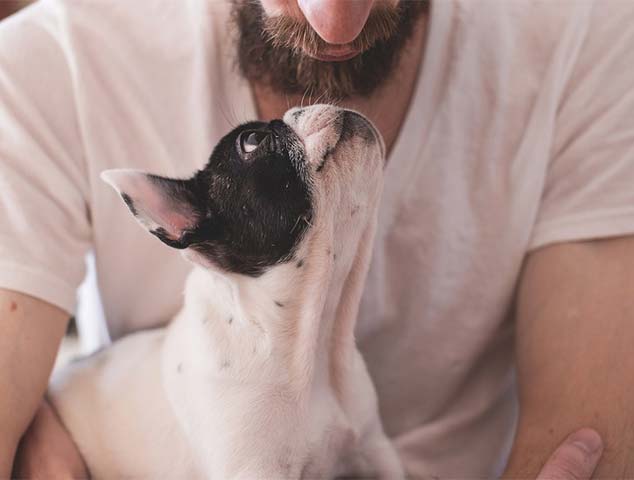The NUTS Syndrome

Yesterday, a local psychologist called me to discuss some unusual cases in her clinic.
“I’ve been seeing a lot of men with abnormal behavior,” she said.
“Sorry, I only treat animal’s with behavior problems,” I replied.
“But that is exactly why I called you. It seems that these men all have one thing in common—their dogs need surgery.”
“Aha, I think I’ve seen this before. What exactly are these men doing?”
“Fainting. They can’t seem to discuss their dog’s operation without getting light-headed and passing out.”
“Wow, that sounds pretty serious.”
“Yes, the good news is that they’re only unconscious for a few minutes, and then they wake right back up.”
“They must really be worried about their dog’s surgery.”
“So it would seem. With careful questioning, I have been able to learn some things about the operation—until they pass out again.”
“Terrific! Tell me what you’ve learned, and hopefully I’ll be able to help you figure out why these men are getting so light-headed.”
“In most cases, it’s practically an ‘outpatient’ surgery— the dogs don’t even need to spend the night.”
“Hmm. That doesn’t sound very risky. What else can they tell you?”
“After the operation, dogs are more likely to live longer and less likely to develop several kinds of cancer.”
“Wow, I’m sure the men want their dogs to live a longer, healthier life. What else do they say?”
“The procedure reduces a dog’s tendency to run away or roam by ninety percent! Since they aren’t running away or roaming, it also lowers their chances of getting lost or hit by a car.
“A surgery that helps to prevent dogs from getting lost or hit by a car. The answer is becoming clearer. . . .”
“I don’t understand why these guys are so apprehensive. They also say that after the operation, canine behavior problems are reduced and dogs are 60% less aggressive!”
“For guys who keep passing out, they sure remember a lot of details. Did they say anything else?”
“The operation reduces a dog’s temptation to urine mark his territory by fifty percent, and it even decreases that embarrassing leg mounting behavior by seventy percent.”
“I wonder who did that study?!”
“Seriously, I’m really worried about these guys. I can’t have them fainting in my office all day long.”
“So let me get this straight. This surgery is minor enough that dogs don’t even have to spend one night in the hospital, yet it will help them to live longer, have a lower risk of cancer, less roaming and fewer behavior or aggression problems. Are there any downsides to the operation?”
“There is a chance that some dogs might gain a little weight.”
“That’s it?”
“Yup, just weight gain, that’s the only potential downside.”
“Well, that’s easy to deal with—if a dog is gaining weight, an owner just needs to feed him less food.”
“A solution so simple that it’s brilliant! So, what’s the deal with this surgery?”
“Well, this is actually a common problem in men. It’s referred to as being NUTS.”
“NUTS!? That’s not a term we like to use in my business.”
“You’re misunderstanding me—NUTS is an acronym. It stands for Neuter Unease Transference Syndrome.
“Which is?”
“The irrational fear that having a dog neutered will somehow have an effect on the male owner.”
“How do I treat it?”
“I’m not sure that you can. For some men it looks like being NUTS is a lifelong condition.”
Article written by Dr. Jon Klingborg, DVM
Please feel free to distribute this article (at no charge) via all media— all I ask is that you give the author and Valley Animal Hospital credit. You will find Dr. Jon Klingborg at the best veterinary animal hospital in Merced, California– Valley Animal Hospital. www.valleyanimalmerced.com. Copyright 2015 by Jon Klingborg.
